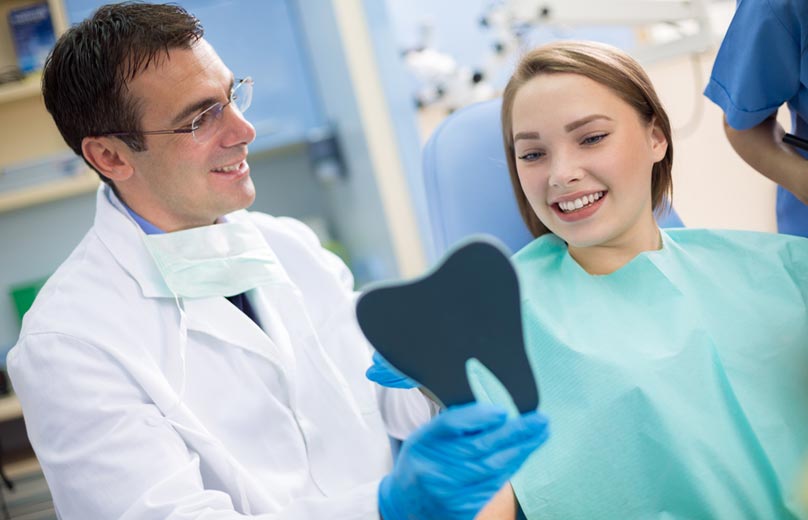Many people think that an orthodontist is just a dentist who puts braces on teeth, but they do much more than that. Orthodontics is a dental speciality that prevents, diagnoses and treats many problems with the face and mouth including malocclusions – bad bites – poorly aligned jaws and crooked teeth.
According to a dentist may be able to do some of that kind of work, especially if they’ve had a lot of experience and the problem is straightforward. However, the orthodontist has had three more years of training to get the expertise he has, so he is more likely to do a good job on the problem, especially if it is not as straightforward as it looks.
Many dentists can certainly recognise a need for orthodontic procedures to be done, which is why you’ll often be given a referral to an orthodontist by your family dentist. However, you don’t need to have one to make an appointment, unlike with some specialists doctors who won’t see you without a referral from a GP.
Orthodontic treatment may be needed for the following problems:
- Crooked teeth
- Overcrowded teeth
- Teeth that overlap
- Overbite
- Underbite
- Protruding teeth such as buck teeth
While the above may not seem all that bad or important, they can cause many bad problems such as –
- Decays and gum diseases due to teeth being hard to clean
- Injury to the gums if teeth are not aligned properly
- Wear and tear so they don’t last as long as they should, or they may break off or fracture
- Lack of self confidence. People with crooked teeth know they don’t look their best and often feel embarrassed.
- A lisp as the teeth prevent you from saying some words properly.
- Difficulty in chewing
Orthodontic treatment may include braces, elastics or a plate. Of the three, only the plate can be removed by the wearer. The orthodontist must be the one to adjust the braces on a regular basis to ensure the teeth are moving to their correct position.
Such treatment can be given when all the teeth are properly through and the jaw has stopped growing. In some cases children as young as 8 or 9 can be diagnosed, but treatment is usually deferred until they are older. Adults can also be given treatment for such problems. This might be the case when dental problems were neglected or the family could not afford it.
Risks of treatment
There are no really bad risks with this type of treatment, however, it is essential to clean the teeth twice daily because having wires in the mouth can trap food and cause decay more easily. There can also be soft tissue injury if they rub or dig into the cheeks or gums. You should tell the orthodontist if this happens.







